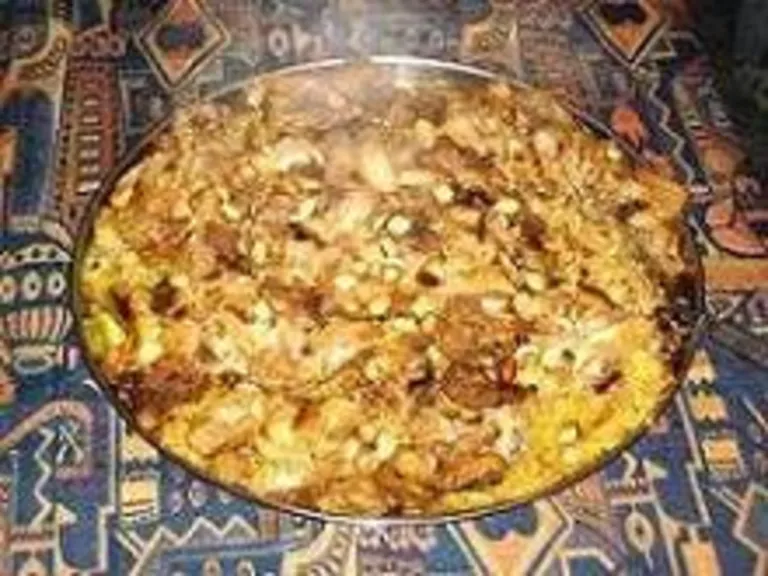It seems that nothing brings us closer to home than the smell and taste of national dishes. I can well remember the time when Poland had no restaurants serving non-Polish food. How exceptional was the period after the summer holidays, when my colleagues would come back from home with bags full of delicacies, spices, ingredients of Palestinian meals! For students such as me who – for various reasons – could not spend their holidays at home, this was the only opportunity to smell the scent of the fatherland. My friends would even call me from other cities to invite me for molukhia, bamja, kusa mahsi or mansaf. Finally someone came up with a briliant idea and opened the first Arabic (Syrian) restaurant in Poland – Szeherezada. The restaurant was located in the Morskie Oko park in Warsaw's Mokotów district. My only visit to that place took a strangely dramatic course. It was November 1990. The day before I had collected my scholarship, rector's award and academic achievement award. Altogether it turned out to be a tidy sum for that period of time. I decided to take my newly wedded wife to a restaurant and introduce her to the wonders of Arabic cuisine, so that she finally becomes familiar with what I had told her about so many times. Of course I ordered all the dishes I had missed so much: shashlik, shish kebab, hummus, moutabal and other treats that Middle Eastern cuisine is famous for. Only when we finished eating did I see the bill and nearly fell off my chair! I spent all the money I had and I still had to borrow the then PLN 1000 from my wife. In relative terms, it was the most expensive meal of my life. Fortunately, we were working at the students' cooperative so we managed to make it until the end of the month.
Some time later, everything changed in Poland. Samira restaurant was opened in Al. Niepodległości street, serving not only bar meals but also home-made dishes. It was accompanied by an Arabic shop offering ingredients for home meals and spices that reminded me of the smell of family home.
Middle Eastern bar meals are most popular among the region's dishes in Poland. These include the famous kebab (properly named shawarma) and falafel, served en masse in numerous Arabic, Turkish and Greek fast food bars. But to enjoy a real feast, one must try home-made dishes. These are divided into two categories: of the picnic/grill type and of the dinner type.
If barbecue is Poles' national sport, Middle Easterners take it to the extreme. Here quantity translates into quality, as can be seen from the variety of grilled meat dishes: kebab, shish kebab, shashlik, kebba, shish taouk. Each of these comes in several kinds, depending on the region and fancy.
In Warsaw these taste best in Le Cedre restaurant in Al. Solidarności street. Its atmosphere is well suited to the characteristics of the cuisine. The music flowing gently from the speakers takes the guests to Lebanese mountains, Syrian gardens or Palestinian beaches. The decor directs my thoughts to the period of Ottoman Sultanate, while the belly dancers remind me of the carefree times when me and my friends would go to a beautiful restaurant located in the Rabwe valley in Damascus.
Just as good a treat can be had in Samira in Al. Niepodległości street. Apart from grill dishes, the place serves very well prepared dinner meals. I have repeatedly told the owner I was coming there first of all to recall the taste and smell of my mother's cooking. One can savour nearly all home-made dishes of the Middle East there in a nice atmosphere. Makluba, mahashi, makali, musaka, fatayer, sfiha, tabbula, fattoush are only a fraction of what the cooks can conjure.
Fresh and Chili in Al. Solidarności street is also an outpost of Middle Eastern cuisine in Warsaw. You can order various kinds of shawarma (called kebab in Poland), original snacks such as falafel, hummus, moutabal, etc. Grilled meat, especially from northern Syria, tastes wonderful with good red wine and even a pint of beer.
The common denominator of all these restaurants is the attitude towards patrons, exactly the same as it is in the Middle East. The clients are welcome guests, not anonymous strangers. Care for their well-being is something that distinguishes these restaurants from mass bars scattered around the city. Even the Sphinx restaurant chain cannot offer such an attitude to guests and atmosphere, although it serves some Arabic dishes.
Middle Eastern cuisine does not differ from that of Turkey or Greece. The majority of dishes are the same, prepared from the same ingredients and seasoned with the same spices. A distinctive element of these cuisines is a large number of appetizers served before the main course. I cannot help myself but tell a story of what happened to my two Polish friends, reporters visiting Palestine. On the last day of their stay they went into a restaurant in Jerusalem. Looking through the menu, their only criterion was price, as they did not wish to exchange any more euros a few hours before leaving the country. They concluded they could not afford anything sophisticated so they chose moukabilat. The waiter, speaking poor English, asked if they wanted it all.
They said 'yes.' After just over ten minutes they were astonished to see successive small plates with successive Palestinian delicacies land on their table. Fifty five arrived as they counted. Moukabilat is nothing more than appetizers served with wine before the main course. So my advice is: when you are in a Middle Eastern restaurant ask the waiter about the dishes you do not know. Or a similar thing can happen to you!
Text by Maged Sahly
Translated by Alicja Minda











